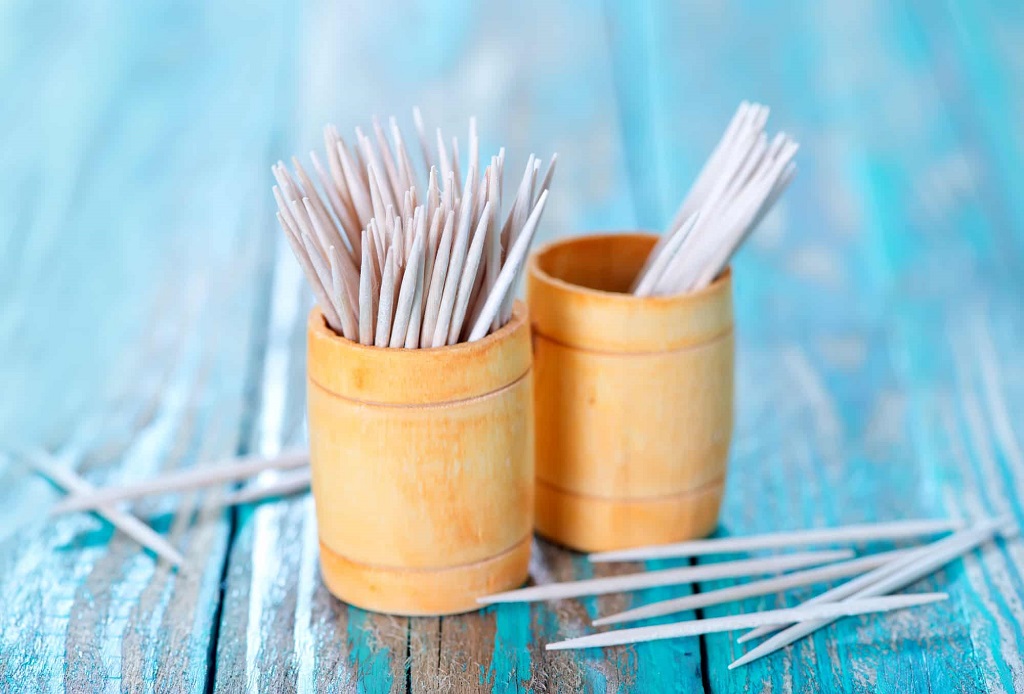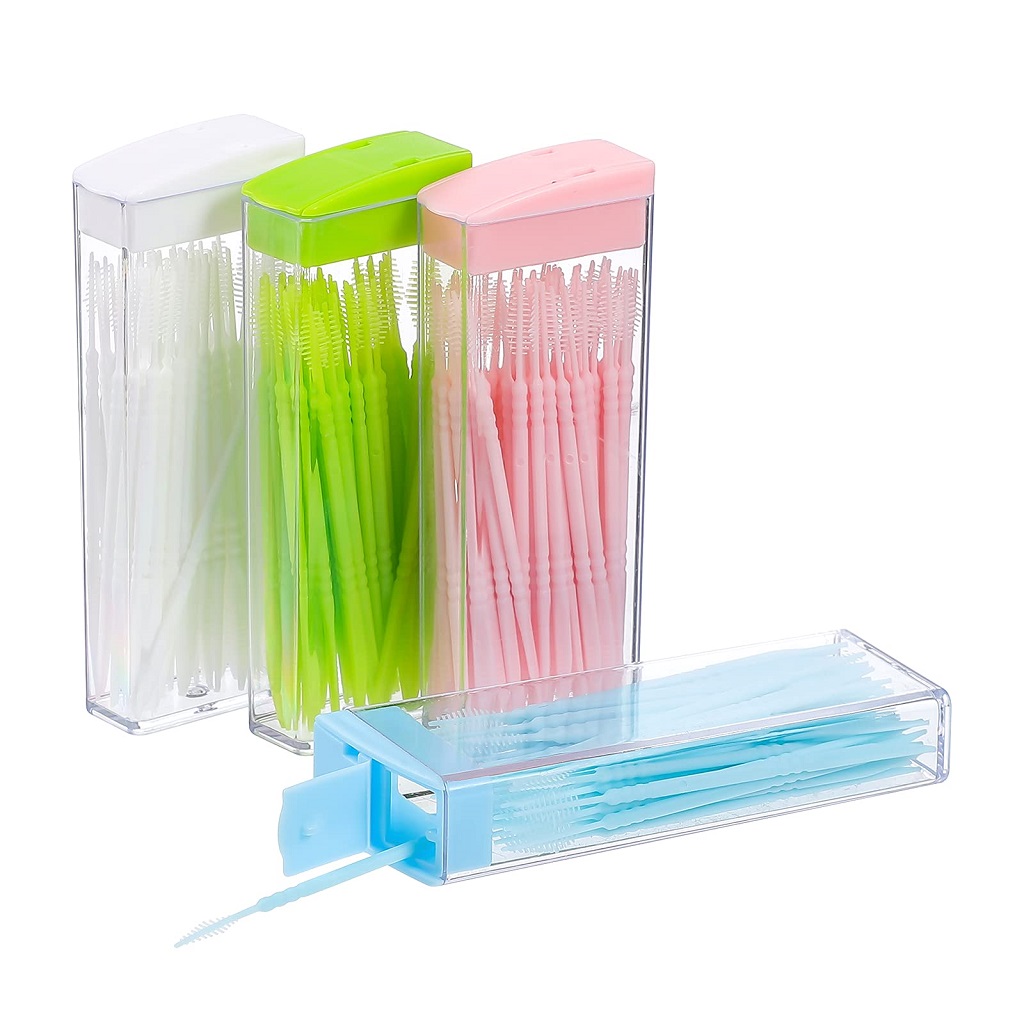 In the quest for optimal oral hygiene, individuals often find themselves grappling with the challenge of dislodging food particles stuck between their teeth. The use of toothpicks has been a longstanding practice, but the question looms: are plastic toothpicks a safe and effective solution, or do they pose potential harm to our dental health? In this comprehensive guide, we delve into the nuances of plastic toothpicks, exploring their impact on oral health and shedding light on alternative solutions.
In the quest for optimal oral hygiene, individuals often find themselves grappling with the challenge of dislodging food particles stuck between their teeth. The use of toothpicks has been a longstanding practice, but the question looms: are plastic toothpicks a safe and effective solution, or do they pose potential harm to our dental health? In this comprehensive guide, we delve into the nuances of plastic toothpicks, exploring their impact on oral health and shedding light on alternative solutions.
The Rise of Plastic Toothpicks:
Plastic toothpicks have become a convenient alternative to traditional wooden or silicone counterparts. Marketed as durable, flexible, and easy to use, these toothpicks boast features that appeal to consumers seeking a hassle-free approach to dental care. However, the surge in their popularity prompts a critical examination of their potential impact on oral health.
The Dangers of Plastic Toothpicks:
Bleeding Gums
One of the primary concerns associated with plastic toothpicks is the potential for bleeding gums. The sharp edges of these picks can inadvertently cause trauma to the delicate gum tissue, leading to bleeding and discomfort.
Root Damage
Beyond surface issues, the use of plastic toothpicks raises concerns about potential root damage. Aggressive or improper use may result in damage to tooth roots, jeopardizing the overall health and stability of the teeth.
Breaking and Lacerations
Plastic toothpicks, though seemingly innocuous, can pose risks of breaking during use. The fragments can cause painful lacerations to the gums and other oral tissues, exacerbating the very issue they aim to resolve.
Infection
Inadvertent injuries caused by plastic toothpicks may pave the way for infections. The mouth, being a breeding ground for bacteria, becomes susceptible to infection if wounds inflicted by toothpick use are not promptly addressed.
Dental Professionals on Plastic Picks
Given these concerns, dental professionals unanimously emphasize the importance of understanding the potential dental concerns with plastic toothpicks. According to leading experts, these concerns extend beyond the immediate risks and encompass long-term oral health implications.
Tooth Damage
Dentists caution against the use of plastic toothpicks due to the potential for tooth damage. The abrasive nature of certain plastic materials may compromise the enamel, leaving teeth vulnerable to decay and sensitivity.
Harmful Impact
Research indicates a harmful impact of plastic toothpicks on overall oral health. The abrasive action, coupled with the risk of injury, outweighs the benefits these picks claim to offer.
Impact on Gum Health:
Gum health is a cornerstone of overall oral well-being, and the choice of oral care tools can influence it significantly. Plastic toothpicks, while effective in removing debris, may not be suitable for everyone. Individuals with sensitive gums or those prone to gum recession should exercise caution, as the rigid nature of plastic toothpicks could potentially exacerbate these issues.
On the flip side, proponents argue that the precision and ease of use offered by plastic toothpicks make them an excellent option for targeting specific areas where dental floss or traditional toothbrushes may fall short. Striking a balance between effective cleaning and gentle care for the gums is crucial for maintaining optimal oral health.
The Hygiene Conundrum:
One of the primary concerns surrounding plastic toothpicks is the issue of hygiene. Unlike their wooden counterparts, plastic toothpicks may not be as porous, but they still require thorough cleaning to prevent bacterial growth. Users must diligently clean the toothpick after each use to avoid introducing harmful bacteria into their mouths.
Moreover, the disposable nature of many plastic toothpicks raises environmental concerns. As the world grapples with the consequences of single-use plastics, the impact of disposable dental accessories on our planet cannot be ignored. Seeking eco-friendly alternatives or adopting reusable dental tools may be a more sustainable choice for environmentally conscious consumers.
Compared with Traditional Toothpicks and Floss:
To determine whether plastic toothpicks are detrimental to oral health, it’s essential to compare them with traditional toothpicks and dental floss. Traditional wooden toothpicks, while biodegradable, can be prone to splintering and may lack the precision needed for effective cleaning. On the other hand, dental floss is praised for its ability to reach tight spaces between teeth, but some find it challenging to use consistently.
Plastic toothpicks attempt to bridge the gap by offering a middle ground between the sturdiness of wooden picks and the precision of dental floss. However, users must weigh the convenience against potential risks to make an informed decision about their oral care routine.
Expert Opinions and Studies:
Dental professionals are divided on the issue of plastic toothpick usage. While some endorse their effectiveness in maintaining oral hygiene, others express reservations about the potential for gum damage and bacterial contamination. Ongoing studies aim to provide a more comprehensive understanding of the impact of plastic toothpicks on oral health, but conclusive evidence remains elusive.
Individuals need to consult their dentists for personalized advice based on their unique oral health needs. Dentists can offer guidance on whether plastic toothpicks are a suitable addition to an individual’s oral care routine, taking into account factors such as gum sensitivity, existing dental conditions, and overall oral hygiene habits.
Alternatives to Plastic Toothpicks
In light of the aforementioned risks, it becomes imperative to explore safer alternatives for maintaining optimal dental hygiene. Dental professionals advocate for adopting best-practice flossing techniques as an effective alternative to plastic toothpicks.
Toothpick Materials and Oral Health
Understanding the impact of toothpick materials on oral health is crucial. Materials such as silicone or wooden picks are recommended for their gentler nature, reducing the risk of injury and damage to teeth and gums.
Dental Care and Toothpick Choices
Making informed decisions about dental care and toothpick choices involves weighing the pros and cons of various options. It’s essential to prioritize oral health over convenience.
Plastic Toothpick Safety Tips
For those still inclined to use plastic toothpicks, adhering to plastic toothpick safety tips can mitigate risks. However, the emphasis should be on caution and mindfulness during use.
Environmental Impact
Beyond individual health considerations, the use of plastic toothpicks raises broader concerns about the environmental impact of plastic toothpicks. The non-biodegradable nature of plastic contributes to environmental pollution, making sustainable alternatives a responsible choice.
The debate surrounding the use of plastic toothpicks underscores the complexity of oral care decisions. Ultimately, individual preferences, dental health needs, and environmental considerations should guide the choice of oral care tools. Whether plastic toothpicks are deemed “bad” for teeth depends on a myriad of factors, and the answer may vary from person to person. As we continue to explore the ever-evolving landscape of dental care, staying informed and consulting with dental professionals will be key to making decisions that promote a healthy and radiant smile.




